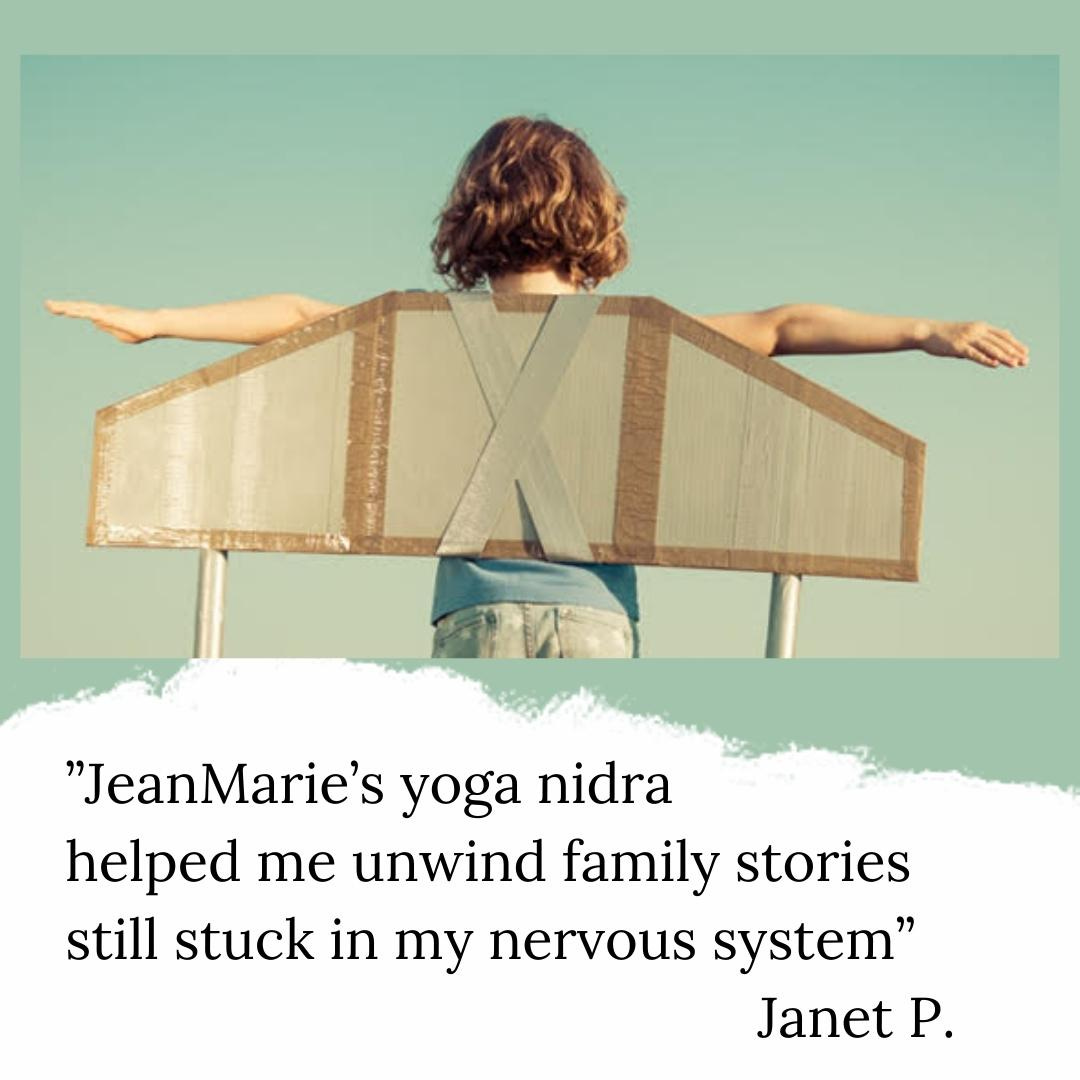A lot of the patterns we run in our nervous system - things like low self esteem and self worth, inability to stay focused, inability to make wholesome decisions for ourselves, negative or undermining self talk, difficulty starting or completing projects, feelings of depression or low energy - are patterns that developed in childhood. They are the results of the environments we spent time in, like our biological family, and early experiences we had in school, church and within our peer group(s). And more often than not, they were formed with incomplete information.
If you’re wondering “What does she mean by incomplete information?” Allow me to explain my view on chronic low self esteem and the impacts of early conditioning.
More often than not, any feelings of inadequacy developed as the result of some one else’s idea of what “such and such” should have looked like. They are the result of a point of view that originated outside of you; namely the opinion(s) of the person or people who helped to install or imprint a specific experience within your nervous system with a residue of feeling inadequate. And residue by its nature is sticky, and over time the stickiness of that “experience or imprint” developed into a pattern that you may be living with today.
I have a client who as a child was always told he was clumsy and as an adult, he has a strong reaction whenever he hears that word. The word “clumsy” is a big shame producing trigger for him. The origins of this issue came into focus when at dinner his own child started knocking over his milk and my client would experience a deep sense of “shame”. He never got mad at his child, but he always felt a deep sense of shame as if he had knocked over the milk.
During our session, as we unpacked this pattern in his nervous system, several very important memories rose to the surface. He remembered a series of childhood experiences when he spilled his milk at dinner. These are the experiences that initiated “the clumsy” dynamic between he and his Dad. He also had a very important “ah ha” memory that accelerated the whole process of unwinding this trigger from his childhood.
During the fourth grade, several times a week he would spill his milk at the dinner. Every night his Mom would set the table placing his glass of milk far away from the tables edge. But for some reason, he remembered knocking it over, spilling some or all of its contents, and being called “clumsy” by his Dad. He remembered and saw several of these occurrences until one time, he saw something different. The “ah ha” memory was remembering the first time he noticed his Dad moving his milk into a position where he could knock it over.
At some point during the meal his Dad would move the glass of milk, into a less than safe location, when he reached for the butter. Being a young child my client didn’t really notice this new location and at some point whack, over the milk would go. His Dad had a habit of doing that several times a week and several times a week the glass of milk did a face plant. He got labeled the “clumsy one” and he carried that label into everything that he did.
In case you’re thinking, “You mean he became clumsy when he wasn’t?”
Yes, because he believed his Dad’s opinion more than he believed his own first hand experience. He assisted that “misperception” of his Dad’s, from the episodes of knocking his milk over, to fulfill a glorious destiny and actually sculpted himself into being “the clumsy one”. He was overpowered by his Dad’s perception of him and, he gave it life.
The thing is, it was a lie. The fuller truth was he was young, not so aware, and for several months did not notice his Dad moving his glass to reach for the butter. Every time his Dad moved his glass, he knocked it on the table or the floor or he almost did, because more often than not, he caught it. He may have still spilled some milk but he caught the glass before it crashed. In his Dad’s mind though, that small puddle was the equivalent of the whole darn glass being spilled. Instead of focusing on the coordination required to keep the glass from a face plant, his Dad focused on the spilled milk.
In that session my client also started to remember how he went from being really good at kick ball, always the first selected as the captains chose their teams, to really bad and the last one selected by default of being the last player left. He saw as a child how he “took on” his Dad’s belief and gave it life. Of course, hearing his Dad call him “clumsy” throughout his childhood years, as a result of those several months when he was in fourth grade, just kept reinforcing the idea.
So here’s the deal, any opinion someone shares about you is their business not yours. They formed it; they own it.
And yes, there may be an element of truth to another’s opinion. It may be a mirror for how the world perceives you, or your actions. But it’s your business and responsibility to discern what is true. If you are on a journey of conscious embodiment, it is your business and responsibility to measure and assign meaning to your intentions and behaviors, in the face of another’s perception of you. If you find there’s some truth, well, you now have a decision to make; shift it or not.
In this process of unwinding childhood wounding, or any long standing issues of low self esteem or self-worth, including chronic feelings of guilt, shame, inadequacy, chaos, anxiety, overwhelm, or of being out of control, you will be healing your nervous system where it is at odds with itself. You will be healing the negative imprints that are running amok in your neural structures, that were counter to the “innocence” of who you were as a developing child.
I can almost hear you saying “What does a nervous system at odds with itself feel like?”
For my client it went something like this. Competing within his nervous system was his Dad’s message of “the clumsy one” and the innocent inner messages from his younger self thinking “Didn’t you see how quick my reflexes were?” or “Didn’t you see that I caught the glass?” The imprints from his childhood experiences, and the influence of the adult who helped form them, were competing with his most coherent present day self. His mind-body connection was running a cocktail of anxiety and stress, leaving him devoid of any sense of coherence. As a result of lacking somatic resiliency, he would oscillate between competence and incompetence. He would be full of confidence to start a project and then fizzle out into various states of overwhelm, analyzing, and over analyzing, fueling his self-doubt until he was in a state of analysis paralysis.
So here’s what I propose he do: I suggested he give it back. I suggested he give that opinion back to his Dad.
And I am going to make the same suggestion to you if you have any long term issue running amok in your nervous system. Give it back to the person who initially lobbed it at you and do not look back at that moment, or those experiences, in that old way ever again.
Dedicate yourself to building your somatic resiliency. Commit yourself to developing the new perspective that, as a child, you were a growing being and like all growing beings, you may have made some mistakes along the way. Isn’t that part of childhood? We try things, make mistakes, learn things and try things again.
And still, now, even this very day, you may make a mistake. And as a person taking up the leadership of your life, you no longer define yourself by mistakes.
You define yourself by the energy, focus and commitment to try again.
Here’s a deep esoteric secret of life: “mis-takes” always have a companion called “try-again” because life really is a moving expression of do something, learn something and, try again.
My client is happily learning how to juggle. And he’s really good. From time to time, as he’s learning to introduce a fourth or fifth ball, he drops one or both. And now, he just picks them up and try’s all over again.
When you take the time to unwind destructive patterns within your neuromuscular system, you employ a strong measure of self-responsibility and begin what I call Taking up the Leadership of Your Life.
So here’s to you adopting the notion that you are an open-ended journey of discovery, of growth, of learning, of trying life on and figuring out if you like what you tried and if not, you try again.
No attempt is final, until you stop trying.




